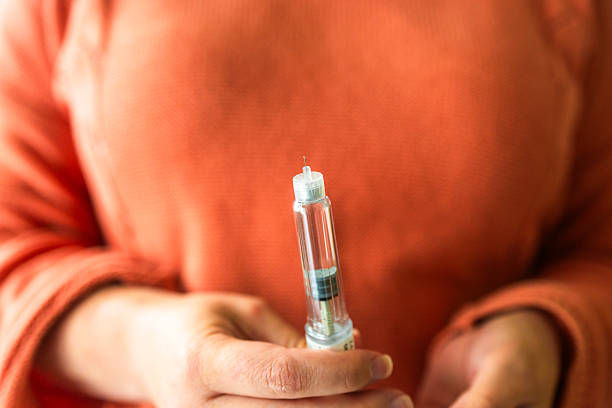How to Choose the Right Type of STD Test in Dubai
- acerstone01
- Apr 19
- 5 min read
Introduction:
When it comes to sexual health, STD test in Dubai is a crucial step in ensuring that you and your partner remain healthy and safe. With a variety of tests available, it’s important to understand which one is right for you. Whether you’re looking for a general screening or targeted testing for specific symptoms, choosing the appropriate STD test can be overwhelming. In this article, we’ll walk you through the different types of STD tests in Dubai, how to determine which one is right for you, and what to expect during the process.
1. Understanding the Different Types of STD Tests
STD tests can be broken down into several categories based on the types of infections they screen for. Here are the main types of tests you may encounter in Dubai:
Blood Tests: These tests check for the presence of antibodies or the virus itself. Common STD blood tests in Dubai include tests for HIV, Hepatitis B, Hepatitis C, and Syphilis. Blood tests are highly accurate and are commonly used for detecting chronic or long-term infections.
Urine Tests: Used to detect certain STDs like chlamydia and gonorrhea, urine tests are non-invasive and easy to administer. They are typically recommended if you have symptoms such as unusual discharge or pain during urination.
Swab Tests: A swab test involves taking a sample from a potentially infected area, such as the cervix, urethra, or throat, and testing it for STDs like gonorrhea, chlamydia, and herpes. Swab tests are highly effective for diagnosing infections in localized areas.
Pap Smears: Primarily used to detect cervical cancer, Pap smears can also identify changes in cervical cells caused by human papillomavirus (HPV), a sexually transmitted infection. This test is typically recommended for women and can be performed during a regular gynecological check-up.
HIV Rapid Tests: This test provides results in as little as 20 minutes and is designed to quickly detect HIV antibodies. It's widely available and often used for people who need immediate results.

2. Consider Your Risk Factors
Choosing the right STD test in Dubai often depends on your individual risk factors. Understanding your risk profile can help you decide which tests to prioritize:
New or Multiple Partners: If you have recently had a new sexual partner or multiple partners, you may want to consider a full panel of STD tests to rule out a variety of infections.
Unprotected Sex: If you’ve had unprotected sex, you should definitely get tested for STDs. This includes situations where condoms were not used or in cases of known condom failure.
Symptoms: If you’re experiencing symptoms such as unusual discharge, sores, pain during urination, or itching, you should seek testing for specific STDs that match those symptoms. Your healthcare provider in Dubai will help guide you through the appropriate tests.
History of STDs: If you’ve had an STD in the past, it’s important to regularly test to ensure that you’re not at risk of re-infection or complications. Regular screening helps you stay on top of your health.
Pregnancy: Pregnant women should consider testing for STDs like syphilis, HIV, and hepatitis, as untreated infections can be passed on to the baby. STD testing in Dubai is often a part of prenatal care.
3. Talk to Your Doctor or Healthcare Provider
If you’re unsure about which STD test is right for you, don’t hesitate to speak with your healthcare provider. They can assess your risk factors, symptoms, and medical history to recommend the most suitable test for your situation. Your provider may suggest a combination of tests based on your individual needs.
Comprehensive Testing: If you're unsure which infection you might be at risk for, ask for a comprehensive STD test panel. This panel typically screens for the most common infections, including chlamydia, gonorrhea, syphilis, HIV, and HPV. Comprehensive testing is especially useful for individuals with multiple risk factors.
Targeted Testing: If you have specific concerns or symptoms, your doctor might recommend a targeted test for a particular STD. For example, if you have genital warts or sores, a swab test for herpes may be necessary.
Testing for Specific Groups: Pregnant women, men who have sex with men (MSM), and individuals with a history of STDs may need more frequent or specific testing based on their increased risk.
4. How Often Should You Get Tested?
The frequency of STD testing in Dubai depends on several factors, including your sexual activity and lifestyle. Here are some general guidelines to help you determine how often you should get tested:
If You’re Sexually Active: If you’re sexually active, getting tested every six months is a good practice. This is especially important if you have multiple partners or engage in unprotected sex.
If You Have a New Partner: It’s a good idea to get tested before engaging in sexual activity with a new partner. This ensures both of you are aware of your sexual health status and can take preventive measures.
If You’re Pregnant: Pregnant women should be tested for certain STDs during their prenatal visits. Your healthcare provider will typically advise when and which tests are necessary.
After Exposure to an STD: If you believe you’ve been exposed to an STD, you should get tested as soon as possible. Some STDs, such as HIV, may not show up immediately after exposure, so you may need to get tested multiple times over a few months.
5. Understanding the Process of STD Testing in Dubai
STD testing in Dubai is simple and typically straightforward. Here’s what you can expect during the process:
Consultation: Your visit will begin with a consultation with your healthcare provider, who will ask questions about your sexual history, symptoms, and risk factors.
Testing: Depending on your doctor’s recommendations, you may undergo a blood test, urine sample, swab test, or Pap smear. Some tests may require fasting or a specific time of day, so be sure to follow any instructions given by the clinic.
Results: In many cases, results are available within a few days to a week. Some clinics in Dubai offer rapid tests, especially for HIV, which can provide results in as little as 20 minutes.
Follow-up Care: If your test results come back positive for an STD, your healthcare provider will discuss the next steps for treatment. Most STDs are treatable with medication, but early diagnosis is key to preventing complications.
6. Conclusion
Choosing the right STD test in Dubai doesn’t have to be complicated. By understanding the types of tests available, considering your risk factors, and consulting with a healthcare provider, you can make an informed decision about your sexual health. Regular testing is a proactive way to ensure both you and your partner stay healthy, and it’s an important step in reducing the spread of STDs.




Comments